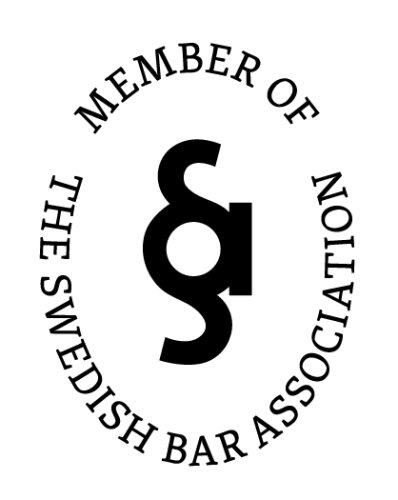Best Renewable & Alternative Energy Lawyers in Sweden
Share your needs with us, get contacted by law firms.
Free. Takes 2 min.
Or refine your search by selecting a city:
List of the best lawyers in Sweden
About Renewable & Alternative Energy Law in Sweden
Sweden is internationally recognized for its commitment to a sustainable energy future. Renewable and alternative energy plays a significant role in the Swedish energy mix, with a majority of the country’s electricity coming from hydropower, wind, bioenergy, and solar sources. The Swedish government actively encourages investment in renewable energy and targets a 100 percent renewable electricity system. This focus is supported by a legal framework that covers the development, operation, and regulation of renewable energy facilities, aiming to ensure environmental protection, energy security, and compliance with European Union directives.
Why You May Need a Lawyer
Legal issues in the renewable and alternative energy sector can be complex and multifaceted. Individuals, businesses, or organizations may need legal advice in the following situations:
- Negotiating contracts for the supply or sale of renewable energy
- Navigating permit applications and regulatory compliance for building and operating energy projects
- Handling disputes related to land use, environmental obligations, or community impact
- Understanding subsidy schemes, government grants, and financial incentives
- Resolving property or zoning issues related to renewable energy installations
- Managing intellectual property or technology licensing issues
- Complying with cross-border energy trade laws or European Union regulations
A lawyer with expertise in renewable and alternative energy law can provide guidance, mitigate risks, and represent clients’ interests before regulatory authorities or in legal proceedings.
Local Laws Overview
Sweden’s legal system governing renewable and alternative energy is shaped by national, regional, and European Union regulations. Key legal aspects include:
- Renewable Energy Certificates (Elcertifikat): Sweden uses a certificate system that incentivizes the production of renewable electricity. Producers receive certificates they can trade to suppliers.
- Permitting and Environmental Assessments: Projects such as wind farms or hydropower installations must undergo environmental impact assessments and obtain permits from local or national authorities.
- Grid Access and Regulation: The Electricity Act and other regulations govern how renewable producers access the national grid, including connection, tariffs, and technical standards.
- Land Use Planning: Municipalities play a central role in zoning and approving locations for energy projects, often balancing local interests and national energy policy goals.
- EU Directives: Sweden aligns its energy laws with the European Union’s Renewable Energy Directive and related climate objectives, affecting everything from reporting requirements to qualifying technology.
Legal compliance is crucial at every stage of a renewable energy project, and laws are subject to regular updates to reflect technological advancements and climate targets.
Frequently Asked Questions
What types of renewable energy projects are most common in Sweden?
The most common projects include hydropower, wind power, bioenergy, and increasingly solar power installations, both at small and large scales.
Do I need a permit to build a wind turbine or solar installation?
Yes, most large installations require permits and environmental assessments. Smaller solar panels on private homes may have simpler requirements but often still need municipal approval.
How do renewable energy certificates work?
Eligible producers receive certificates for each megawatt hour of renewable electricity generated. The certificates can be sold to energy suppliers, creating a market-based incentive for renewable production.
What are the main regulatory authorities for renewable energy?
Key authorities include the Swedish Energy Agency, regional environmental courts, municipalities, and the Swedish Energy Markets Inspectorate.
Are there financial incentives or subsidies for renewable energy?
Yes, Sweden offers support schemes such as tax deductions, grants, investment aids, and the certificate system for renewables. Eligibility depends on project size, type, and compliance.
Can I sell excess electricity generated from renewables back to the grid?
Private individuals and companies can often sell surplus renewable power to the grid, but specific rules on meter installation, tariffs, and contracts apply.
What environmental obligations apply to renewable energy projects?
Projects must comply with strict environmental protection laws, including assessments of impacts on nature, wildlife, water, and local communities.
How does Sweden’s renewable energy law relate to EU law?
Swedish law aligns closely with European Union regulations and directives, particularly the Renewable Energy Directive, which sets binding targets and reporting standards.
Who can participate in the renewable energy market?
Both private individuals and businesses can invest in or operate renewable energy installations, subject to licensing and compliance with relevant legal requirements.
What should I do if I face a legal dispute regarding a renewable energy project?
It is advisable to consult a legal professional with experience in energy and environmental law. Disputes may be handled by courts, administrative bodies, or through arbitration depending on the nature of the conflict.
Additional Resources
For further information and advice, consider contacting the following Swedish organizations and authorities involved with renewable and alternative energy:
- Swedish Energy Agency (Energimyndigheten)
- Swedish Energy Markets Inspectorate (Ei)
- Swedish Environmental Protection Agency (Naturvårdsverket)
- Local municipal planning and environmental departments
- Swedish Wind Energy Association (Svensk Vindenergi)
- Swedish Bioenergy Association (Svebio)
- Chamber of Commerce and business advisory services
Many of these organizations publish guides and offer consultations regarding regulatory compliance and support opportunities.
Next Steps
If you believe you need legal assistance regarding renewable or alternative energy in Sweden, consider the following steps:
- Gather all relevant documents, including project plans, permits, correspondence, and contracts
- Identify your specific legal concern, such as permitting, contracts, environmental compliance, or disputes
- Contact a lawyer or legal advisory service experienced in Swedish energy and environmental law
- Prepare a clear summary of your situation and desired outcomes for your legal advisor
- Stay informed through official resources and keep track of any updates to laws or regulations
Early legal advice can help clarify your responsibilities, protect your interests, and improve the chances of a successful renewable energy project in Sweden.
Lawzana helps you find the best lawyers and law firms in Sweden through a curated and pre-screened list of qualified legal professionals. Our platform offers rankings and detailed profiles of attorneys and law firms, allowing you to compare based on practice areas, including Renewable & Alternative Energy, experience, and client feedback.
Each profile includes a description of the firm's areas of practice, client reviews, team members and partners, year of establishment, spoken languages, office locations, contact information, social media presence, and any published articles or resources. Most firms on our platform speak English and are experienced in both local and international legal matters.
Get a quote from top-rated law firms in Sweden — quickly, securely, and without unnecessary hassle.
Disclaimer:
The information provided on this page is for general informational purposes only and does not constitute legal advice. While we strive to ensure the accuracy and relevance of the content, legal information may change over time, and interpretations of the law can vary. You should always consult with a qualified legal professional for advice specific to your situation.
We disclaim all liability for actions taken or not taken based on the content of this page. If you believe any information is incorrect or outdated, please contact us, and we will review and update it where appropriate.
Browse renewable & alternative energy law firms by city in Sweden
Refine your search by selecting a city.















